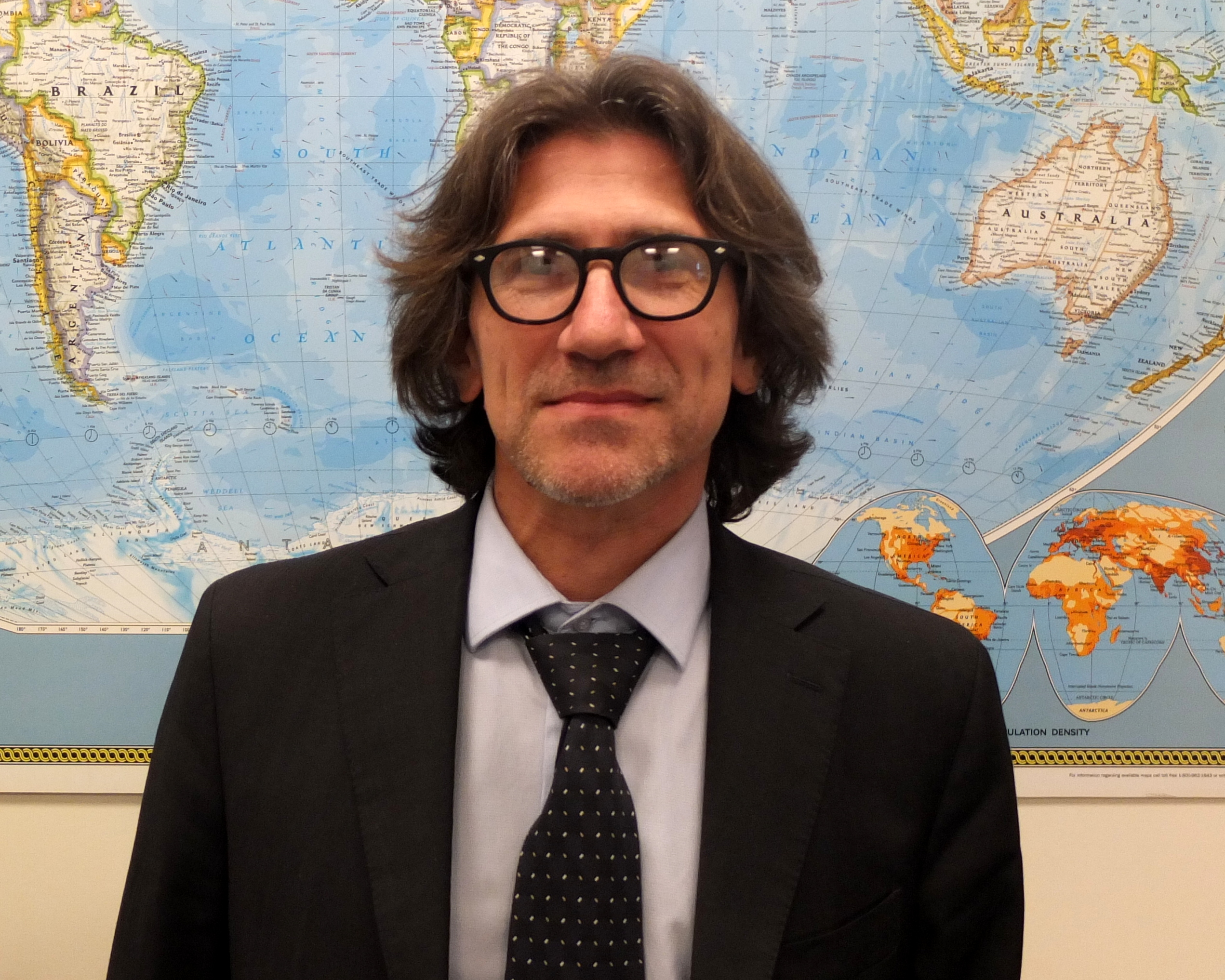
Story by Viviana Cristian, National Capital Region, Disaster Response Leader and Casework Supervisor
As the daughter of Colombian immigrants, I was excited to have the opportunity to sit in on an interview with Jordi Raich, head of the International Committee of the Red Cross (ICRC) delegation in Bogota, Colombia. For the last three generations, Colombia has been involved in a conflict that has displaced over four million people. While many Colombians have sought asylum abroad, those who have stayed have risked kidnappings, recruitment into armed forces, and forced disappearances.
Raich talked in detail about ICRC Bogota’s programs, including their role in ensuring safe returns for the missing. When someone is kidnapped within the context of Colombia’s armed conflict, the ICRC often acts as a neutral intermediary, speaking with all sides in an effort to visit people who are being held, ensure their wellbeing, and, when possible, work towards facilitating their release and family reunification.
I couldn’t help but tear up when he recounted one situation when he was traveling via helicopter with men released from an armed group, some of whom had been captive for nearly 20 years. They couldn’t believe they were really being released. When they finally reached the airport, the men broke down and burst into a song from the salsa group Niche, “Hagamos Lo Que Diga El Corazón” (Let’s Do what the Heart Says). The song is about how the crisis is now over, the bad things are in the past, so let us move on and go with our heart’s desire.
Fortunately, hostages are not often held for that long anymore; it is now a question of weeks or a few months. In preparation for reunification, both the families and the soon to be released are counseled and brought up to date on each other’s lives. ICRC’s role does not end with seeing the family and former missing person reconnect. There is follow up to see how families are adjusting and if there is still a need for Red Cross services.
Throughout the interview, Raich emphasized three important points. First, he said the Colombian Restoring Family Links (RFL) program has improved through the use of technology. Second, he personally believes the current peace talks between the Revolutionary Armed Forces of Colombia (more commonly known as FARC) and the government will end the conflict. Third, he stated once the country enters a post-conflict situation, the RFL program will grow even more. The guerilla fighters will be demobilizing and those fighters, among them minors, will be trying to find and reunite with family members.
For many years, I have doubted the ability of the conflict parties to agree to peace. Yet by the end of the interview, Raich changed my skepticism of the peace talks to actual hope. I thank him for that and I thank him and ICRC Bogota for all they have done to help my fellow Colombians.
During this year’s International Day of the Disappeared, it is important to recognize the work the ICRC and other global organizations do to help locate the missing and provide comfort for their families. For more information on the disappeared and the work being done to uncover their fate, please visit the ICRC’s website on the missing.
